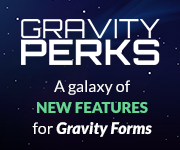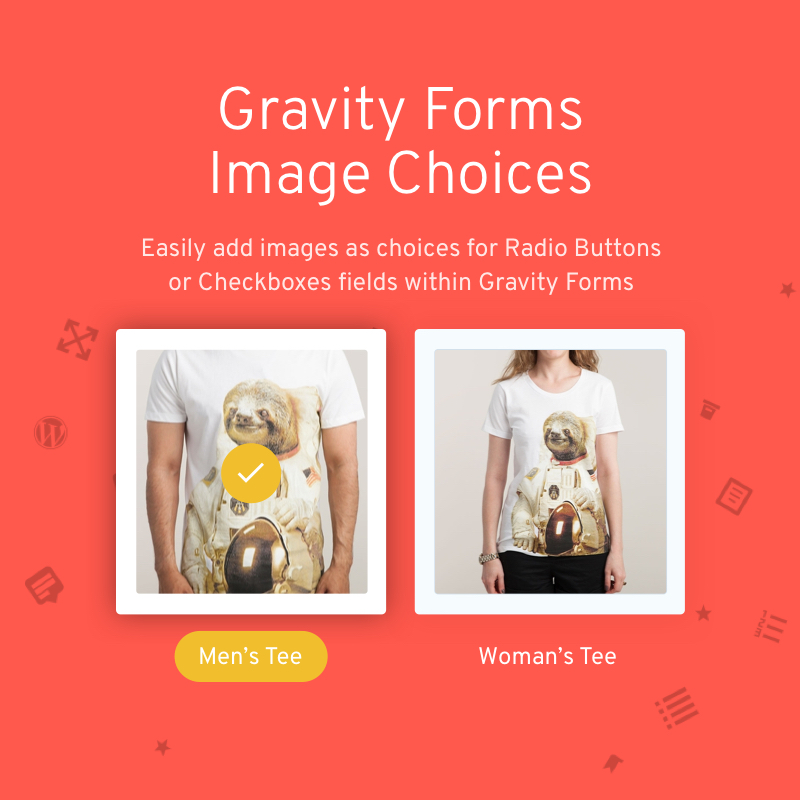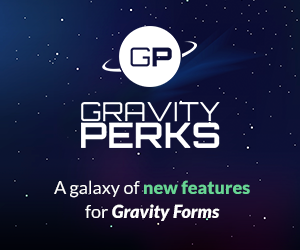When selecting a form plugin for your WordPress website, you might find yourself comparing Gravity Forms vs WPForms, two of the leading options available. Each has its own set of strengths tailored to different types of users and uses. Gravity Forms is well-regarded for its robust feature set and flexibility, which caters to developers and advanced users seeking complex form functionality. On the other hand, WPForms is celebrated for its user-friendly interface and its multitude of pre-built form templates, making it highly accessible for beginners and those needing to implement forms quickly and efficiently.
Deciding between Gravity Forms and WPForms hinges on multiple factors, including ease of use, customization capabilities, and the level of support you require. Gravity Forms offers a range of advanced fields and customization options paired with conditional logic to enhance your forms. Conversely, WPForms provides a straightforward drag-and-drop builder and a variety of pre-designed form templates, which can minimize the time you spend on form creation. They both include options to combat spam, ensure responsive designs, and integrate with various third-party services.
The differentiation extends to their pricing structures as well. WPForms provides a free version with basic features, ideal if you’re on a budget or only require simple form-building capabilities. If your needs grow, there are premium versions available that add more advanced functions. Gravity Forms does not have a free version but comes with different licensing tiers, allowing you to choose according to your needs and the complexity of forms you intend to build. Each tier offers different add-ons and support levels to scale with your requirements.
Overview of Gravity Forms and WPForms
When choosing a form builder plugin for your WordPress site, you’ll want to compare Gravity Forms and WPForms on several critical fronts like features, user experience, and value for money. Each has its strengths, tailored to different user needs and expertise levels.
Key Features of Gravity Forms
- Conditional Logic: Gravity Forms allows you to create forms that change based on user input.
- Integrations: Offers robust integrations with various email marketing and payment gateway services.
- Entry Management: An intuitive system to manage and review form submissions from your WordPress dashboard.
Key Features of WPForms
- Drag-and-Drop Builder: A beginner-friendly interface that simplifies form creation.
- Templates: WPForms includes over 1,300 pre-built form templates to get you started quickly.
- Captcha: Custom captcha options help to prevent spam submissions.
Ease of Use Comparison
Gravity Forms is developer-focused, offering detailed customization options, whereas WPForms aims for simplicity, making it more accessible for beginners through its intuitive drag-and-drop form builder.
Design and Customization
- Gravity Forms: Offers high control over form design, making it more adaptable but also more complex to customize.
- WPForms: Provides a user-friendly layout with easy-to-customize templates that are ideal for those looking to quickly design and deploy forms.
User Support and Documentation
Both plugins offer extensive documentation, but WPForms tends to be more suited for users without technical expertise. On top of that, they provide email support with varying response times depending on your plan.
Pricing and Plans
- Gravity Forms: Offers several premium plans, each adding more advanced features and add-ons, with no free version available.
- WPForms: Includes a limited free version, with more advanced features and support included in their Basic, Plus, Pro, and Elite licenses.
Overall Benefits for WordPress Users
Each plugin enhances your WordPress website by allowing you to build forms tailored to your needs, whether that’s a simple contact form or a complex, multi-page survey with payment integrations.
Comparative Analysis of Form Building Capabilities
When choosing between Gravity Forms and WPForms for your WordPress site, it’s critical to understand their form-building capabilities. Each plugin offers unique features that cater to specific needs, from simple contact forms to advanced user registration and payment processing.
Form Templates and Fields
Gravity Forms provides you with a wide variety of form templates and fields, allowing you to assemble complex forms quickly. WPForms, on the other hand, stands out with its 1,300+ pre-built templates, making it exceedingly easy for beginners to create simple and advanced forms without hassle. Both plugins offer standard to advanced fields, but WPForms is known for its user-friendly approach to form creation.
Advanced Form Features
For those requiring advanced features, Gravity Forms is well-equipped, allowing the creation of multi-page forms and facilitating file uploads. The capability of handling partial entries and enhancing user engagement through surveys and quizzes also sets it apart. WPForms counterbalances with smart conditional logic, enabling personalized user interaction based on form input.
Conditional Logic and User Interaction
Conditional logic is a significant aspect that determines how forms behave in response to user input. Both Gravity Forms and WPForms support robust conditional logic, which helps customize form fields, sections, and confirmations displayed to users. With this feature, you can guide users through a tailored form experience and enhance interaction.
Marketing and CRM Integrations
Connecting forms to your marketing and CRM systems is vital for effective lead capture and customer relationship management. Gravity Forms boasts a range of CRM integrations, including support for Zapier, Mailchimp, HubSpot, and ActiveCampaign. WPForms also offers powerful marketing integrations, ensuring seamless data flow between your forms and marketing software.
Payment Processing and Security
Lastly, payment collection is streamlined by both plugins. Gravity Forms and WPForms include integration with popular payment gateways like Stripe, PayPal, and Square, making online transactions secure and convenient for users. Additionally, advanced spam protection mechanisms protect your forms from unwanted spam submissions, which is a crucial aspect of security for any online form.
Additional Features and Extensions
When selecting a form plugin for your WordPress site, the breadth of additional features and extensions can significantly enhance your website’s functionality. These can range from surveys to geolocation, each adding layers of interaction and management to your forms.
Form Add-Ons and Extensions
WPForms boasts a robust selection of add-ons suitable for both beginners and advanced users. You can enhance your forms with surveys and polls, allowing you to gain actionable insights directly from user responses. The geolocation feature helps you collect and store location data from form submissions. For a direct look into what WPForms offers, you can find more on their add-on selection and features.
In contrast, Gravity Forms also offers a powerful suite of add-ons, including advanced survey tools and the ability to implement polls. Their extensions enable deeper customization, such as webhooks for developer-friendly integrations and spam protection for maintaining form integrity. A comprehensive list of Gravity Forms add-ons can be found here.
Performance and Reliability
Your forms need to perform consistently, and WPForms are designed with a focus on reliability. They ensure your form submissions are not only captured accurately but also managed effectively through streamlined entry management systems. WPForms’ email notifications are prompt, ensuring you stay updated with every submission.
Gravity Forms matches this reliability with their performance-centric approach. They provide robust spam protection mechanisms to safeguard your form submissions against unwanted spam entries, contributing to the overall performance by reducing unnecessary data bloat.
Custom Development and Integration
For developers looking for custom development options, Gravity Forms provides extensive opportunities to integrate with various services and customize behaviors using webhooks and additional customization tools. They cater to developers with an affinity for refined control over form actions and integrations.
WPForms, with its emphasis on user-friendliness, also offers customization abilities. They make it approachable for users to extend the plugin’s functionality without extensive programming knowledge, although developer-specific features remain somewhat more accessible in Gravity Forms.
Both plugins offer a range of additional features and extensions enhancing the form experience on your WordPress site. Identify your specific needs, whether it’s gathering data with surveys and polls or managing submissions effectively, and choose a plugin that caters to those requirements while ensuring reliability and the option for deeper custom development if necessary.
Final Recommendation and Verdict
In comparing Gravity Forms and WPForms, it’s evident each has its strengths suited for specific use cases. Your decision hinges on the precise needs of your WordPress site.
Concluding Thoughts on Gravity Forms
Gravity Forms is lauded for its robust entry management system, making it a powerful tool if your focus is on detailed form entries and complex data collection. Documentation and support options are comprehensive, catering to both new and experienced users. It’s a premium-only plugin with no free version available, which may influence your decision if the budget is a concern.
Concluding Thoughts on WPForms
Conversely, WPForms shines in its usability, especially for beginners, and includes a WPForms Lite version at no cost. Although this lite version is more limited, it allows you to explore basic functionalities before deciding to invest in the full plugin. For advanced requirements, upgrading to the premium version unlocks a breadth of features akin to Gravity Forms.
Making the Best Choice for Your WordPress Site
When evaluating WordPress form builder plugins, consider the key differences between these options. Gravity Forms vs WPForms essentially boils down to complex data handling versus ease of use and access to a free tier. If intricate form-related workflows are central to your operations, Gravity Forms might be the better fit. If you’re new to WordPress or require fundamental form-building tools without immediate investment, WPForms and its free WPForms Lite could be the starting point you need.
In the end, both form builders are competent; your choice should align with your site’s demands, expertise level, and financial flexibility. Select the one that promises to complement your WordPress journey best.
Frequently Asked Questions
When choosing between Gravity Forms and WPForms, you may have several questions about cost differences, features comparison, popularity, and their advantages over other form builders. This section aims to address some of the most frequently asked queries.
What are the cost differences between Gravity Forms and WPForms?
Gravity Forms offers various pricing tiers, with the basic plan typically starting higher than WPForms’ starter plan. WPForms provides a free version with basic features, which is a cost-effective option if you’re on a tight budget.
How do Gravity Forms and WPForms features compare?
Both plugins boast a robust set of features for form building. WPForms is known for its user-friendly interface and 1,300+ form templates, while Gravity Forms offers extensive customization options and is often preferred by developers for more complex form requirements.
Which form builder plugin, Gravity Forms or WPForms, is more popular among WordPress users?
WPForms has garnered popularity for its simplicity and ease of use, making it a go-to choice for WordPress users who are not developers. Gravity Forms remains a strong competitor, especially among those who seek deeper functionality and customization.
What are the advantages of using Gravity Forms over other form builders like WPForms, Formidable Forms or Ninja Forms?
Gravity Forms stands out with its high customization options and extensive add-ons, catering well to developers looking for a highly adaptable tool. It also supports complex form-related tasks that might go beyond the scope of other form builders like WPForms.
What are the best free alternatives to Gravity Forms for WordPress site owners?
For WordPress site owners seeking free alternatives to Gravity Forms, options such as Contact Form 7 or the free version of WPForms might serve basic needs without the financial commitment. These solutions provide fundamental features sufficient for creating standard contact forms.





